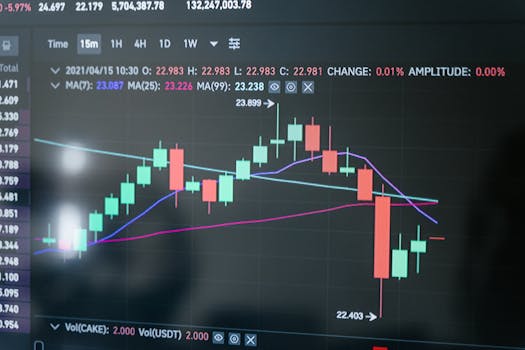
“
How Cryptocurrencies Will Shape the Global Economy by 2025
Introduction to Cryptocurrencies

Cryptocurrencies will shape the global economy by 2025. The rise of digital currencies has been a significant trend in recent years, with Bitcoin and Ethereum being the most well-known examples. But what exactly are cryptocurrencies, and how will they impact the global economy? In this article, we’ll explore the world of cryptocurrencies and their potential to transform the way we think about money and financial transactions.
What are Cryptocurrencies?

Cryptocurrencies are digital or virtual currencies that use cryptography for secure financial transactions. They are decentralized, meaning that they are not controlled by any government or financial institution. Cryptocurrencies are based on a technology called blockchain, which is a distributed ledger that records all transactions made with a particular cryptocurrency.
The Rise of Cryptocurrencies

The first cryptocurrency, Bitcoin, was created in 2009 by an individual or group of individuals using the pseudonym Satoshi Nakamoto. Since then, hundreds of other cryptocurrencies have been developed, including Ethereum, Litecoin, and Monero. The rise of cryptocurrencies has been fueled by several factors, including the growing demand for digital payments, the need for secure and transparent financial transactions, and the increasing popularity of blockchain technology.
How Will Cryptocurrencies Shape the Global Economy?

By 2025, cryptocurrencies are expected to play a significant role in shaping the global economy. Here are some ways in which cryptocurrencies will impact the global economy:
- Increased Financial Inclusion: Cryptocurrencies will provide access to financial services for millions of people around the world who are currently unbanked or underbanked. This will help to reduce poverty and inequality, and will provide new opportunities for economic growth and development.
- Improved Security and Transparency: Cryptocurrencies use advanced cryptography and blockchain technology to secure financial transactions. This will help to reduce the risk of fraud and corruption, and will provide a more transparent and accountable financial system.
- Reduced Transaction Costs: Cryptocurrencies will reduce the cost of financial transactions, making it cheaper and faster to send and receive money across borders. This will help to increase trade and investment, and will provide a boost to economic growth.
- New Business Opportunities: Cryptocurrencies will create new business opportunities, including the development of new financial products and services, such as cryptocurrency exchanges, wallets, and payment processing systems. For more on this, check out emerging trends in cryptocurrency.
Challenges and Risks

While cryptocurrencies have the potential to transform the global economy, there are also challenges and risks that need to be addressed. These include:
- Regulatory Uncertainty: The regulatory environment for cryptocurrencies is still unclear, and this uncertainty is creating uncertainty and volatility in the market.
- Security Risks: Cryptocurrencies are vulnerable to hacking and other security risks, which can result in the theft of funds and damage to reputation.
- Market Volatility: The cryptocurrency market is highly volatile, and prices can fluctuate rapidly. This can make it difficult for investors to predict the value of their investments.
Conclusion

In conclusion, cryptocurrencies will shape the global economy by 2025. They have the potential to provide increased financial inclusion, improved security and transparency, reduced transaction costs, and new business opportunities. However, there are also challenges and risks that need to be addressed, including regulatory uncertainty, security risks, and market volatility. As the use of cryptocurrencies continues to grow, it’s likely that we’ll see significant changes in the way we think about money and financial transactions. For more insights, read about the future of cryptocurrencies.
See more:
https://www.coindesk.com/
https://www.bitcoin.com/
https://www.ethereum.org/






